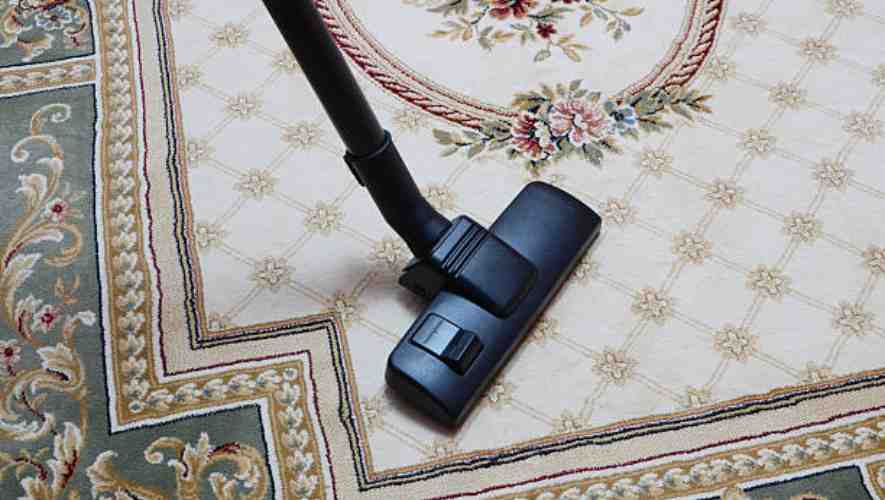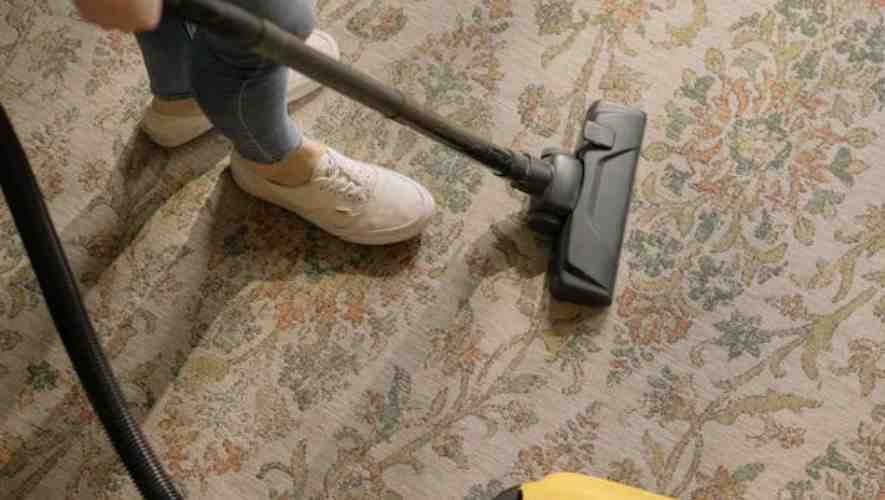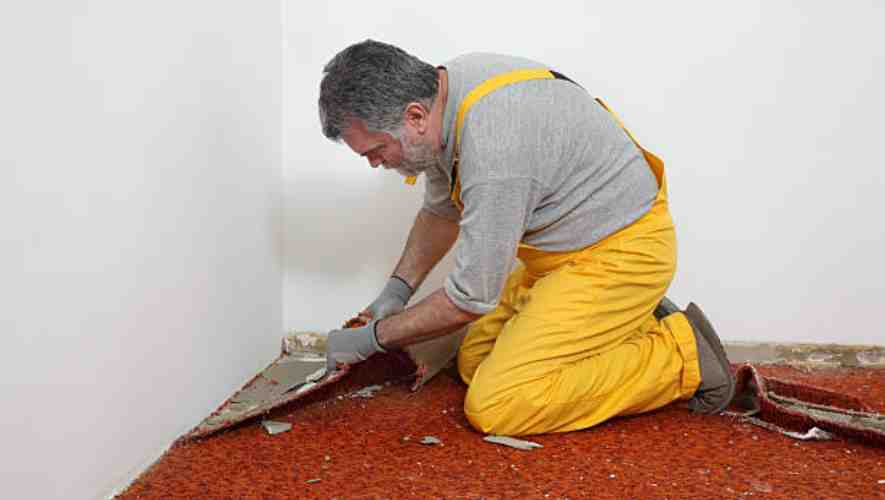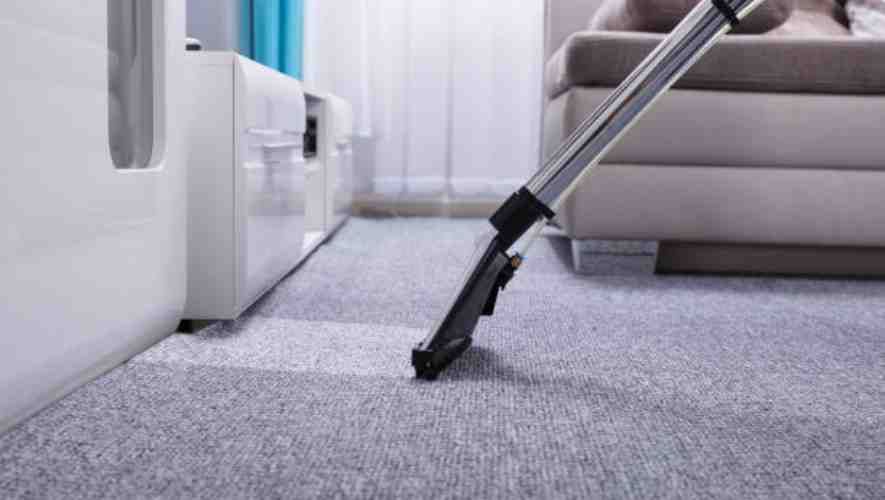Are you a tenant preparing to move out and wondering about your responsibilities regarding carpet cleaning? This is a common concern for many renters, who often face confusion about what is expected of them when vacating a property. The uncertainty about whether or not to clean carpets can add unnecessary stress during an already busy time.
Do Tenants Have to Clean Carpets When Moving Out? Tenants are generally expected to clean carpets when moving out, returning the property to its original state, minus normal wear and tear. However, specific requirements may vary based on the lease agreement and local laws. It’s advisable to check these details beforehand.
As a tenant, it’s crucial to understand your obligations to avoid disputes with your landlord. This article dives into the specifics of carpet cleaning responsibilities, examining lease agreements, legal requirements, and practical tips. Whether you’re a first-time renter or seasoned tenant, you’ll find valuable insights to navigate this aspect of moving out with ease.
Overview of Tenant Responsibilities

When vacating a property, tenants bear a set of responsibilities crucial for a smooth transition. It’s not just about packing and moving; there are legal and ethical obligations involved.
Ensuring the property is left in the same condition as upon arrival, barring normal wear and tear, is a key aspect. This practice not only fosters goodwill with the landlord but also safeguards the tenant’s financial interests, such as the security deposit.
The process of vacating a property involves several steps that tenants must adhere to. Firstly, notice must be given to the landlord within the timeframe specified in the lease agreement. Cleaning and repairs, as per the initial condition of the property, are vital.
Additionally, tenants are responsible for removing all personal belongings and ensuring all bills are paid. This thoroughness helps in avoiding any disputes and potential legal issues post move-out.
Leaving a rental property in good condition is more than a courtesy; it’s a tenant’s obligation. It reflects respect for the property and the landlord-tenant relationship. A well-maintained property paves the way for the full return of the security deposit.
Moreover, it contributes to a positive rental history, which is beneficial for future leasing endeavours. Neglecting this responsibility can lead to financial penalties and a tarnished rental record, impacting future housing opportunities.
Legal and Contractual Obligations to Clean Carpets When Moving Out

When discussing property maintenance and cleaning in the context of rental agreements, it’s crucial to understand the legal and contractual obligations involved. Most rental agreements and leases include specific clauses that outline the responsibilities of tenants in terms of maintaining and cleaning the property.
These clauses are legally binding and ensure that tenants are aware of their duties to keep the property in a good state. This not only preserves the property’s condition but also adheres to health and safety standards, which are often governed by local laws.
Understanding Cleaning and Maintenance Clauses
Rental agreements typically contain detailed clauses regarding cleaning and maintenance. These clauses explicitly state what is expected of the tenant, including regular cleaning tasks and the upkeep of the property.
For instance, tenants may be required to regularly vacuum carpets, clean windows, and perform other maintenance tasks to ensure the property remains in a habitable condition.
Failure to comply with these clauses can lead to consequences such as deductions from security deposits or even legal action, depending on the severity of the neglect.
Carpet Maintenance Specifics
Carpets often require special attention in rental agreements due to their susceptibility to damage and wear. Agreements usually specify how carpets should be maintained, including regular vacuuming and professional cleaning.
Some contracts may require tenants to professionally clean the carpets at regular intervals or at the end of the tenancy. This ensures that carpets are maintained to a standard that prevents deterioration over time and keeps them in a condition that is acceptable for future tenants.
Legal Implications of Non-Compliance
Non-compliance with cleaning and maintenance clauses in rental agreements can lead to legal implications for tenants.
Landlords have the right to enforce these clauses and can take actions ranging from retaining a portion of the security deposit to cover cleaning and repair costs, to legal proceedings in more severe cases.
Tenants should be aware of these potential consequences and ensure they adhere to their contractual obligations to avoid any legal disputes and additional costs.
Consequences of Not Cleaning Carpets When Moving Out

Security Deposit Deductions
When tenants neglect the cleaning of carpets before moving out, one of the most immediate consequences is the deduction from their security deposit. Landlords often assess the condition of the carpet against its state at the time of tenancy commencement.
If the carpet is found to be excessively dirty or damaged, costs for deep cleaning or replacement can be substantial, leading to significant deductions from the security deposit.
This financial loss serves as a deterrent to tenants, emphasising the importance of maintaining the property’s cleanliness.
Cost of Professional Cleaning Services
If a tenant fails to clean the carpets, landlords may opt to hire professional cleaning services to restore the carpet to its original condition. The cost for these services is usually higher than what it would be for a tenant to clean it themselves or hire a service at their discretion.
This additional expense, often deducted from the security deposit, can be a costly oversight for tenants who underestimate the importance of leaving their rental in a clean state, particularly the carpets which are prone to wear and tear.
Legal Implications
In some cases, the neglect of carpet cleaning can escalate into legal disputes between tenants and landlords. Landlords have the right to ensure their property is returned in a similar condition to when the tenancy began, barring normal wear and tear.
If a tenant’s failure to clean the carpet violates lease agreements or local tenancy laws, it could lead to legal action.
This can be both time-consuming and expensive, potentially involving court costs and legal fees, not to mention the stress and inconvenience of legal proceedings.
Impact on Future Rentals
Lastly, failing to clean carpets can have a long-term impact on a tenant’s rental history. Landlords often communicate with each other or refer to rental history databases when considering new tenants.
Reports of property mistreatment, including not cleaning carpets, can reduce a tenant’s attractiveness to future landlords.
This tarnished rental history can make it more challenging for tenants to secure desirable rentals in the future, highlighting the broader implications of carpet maintenance.
Professional vs. DIY Carpet Cleaning

When it comes to maintaining the cleanliness and longevity of carpets, homeowners often find themselves at a crossroads: should they hire professional carpet cleaners, or take on the task themselves?
This decision is influenced by various factors, including the carpet’s condition, financial considerations, personal preferences, and the terms of a lease if renting.
In this discussion, we’ll explore the pros and cons of both professional and DIY carpet cleaning, helping you make an informed choice.
Expertise and Equipment: The Professional Edge
Professional carpet cleaners bring a level of expertise and specialised equipment that is hard to match with DIY methods.
They use commercial-grade steam cleaners and cleaning solutions that penetrate deep into the carpet fibres, removing more dirt, allergens, and stains than most rental or home equipment.
Professionals also have the knowledge to treat different types of carpets and stains appropriately, ensuring that the carpet is not damaged during the cleaning process.
However, this expertise comes at a cost, making professional cleaning more expensive than DIY methods.
Cost and Convenience: The DIY Appeal
Opting for DIY carpet cleaning can be significantly more cost-effective. By renting a steam cleaner or using home carpet cleaning solutions, homeowners can save money.
This approach also offers convenience and flexibility, allowing you to clean the carpet at your own pace and schedule.
However, the effectiveness of DIY cleaning largely depends on your ability to operate the equipment correctly and the quality of the cleaning products used.
There’s also a risk of damaging the carpet due to improper handling or using incorrect cleaning solutions.
Time and Effort: Balancing Priorities
Professional carpet cleaning is less time-consuming for the homeowner. The cleaners take care of everything, from moving furniture to drying the carpets, saving you time and effort. This is especially beneficial for those with busy schedules or physical limitations.
In contrast, DIY carpet cleaning can be labour-intensive and time-consuming, requiring physical effort and patience. It may involve multiple stages, such as vacuuming, spot cleaning, and operating a steam cleaner, which can be challenging for some.
Lease Agreements and Rental Properties
For renters, the decision between professional and DIY carpet cleaning might be influenced by the terms of their lease agreement.
Some landlords require professional carpet cleaning at the end of a tenancy, and failing to comply could result in a portion of the security deposit being withheld. In these cases, hiring professionals ensures compliance with lease terms.
However, if the lease is more lenient, DIY cleaning can be a cost-effective way to maintain the carpet’s condition throughout the tenancy.
Conclusion
Understanding your responsibility for carpet cleaning when moving out is vital. It often depends on the condition of the carpet upon move-in and the stipulations in your lease agreement.
Concluding our discussion, it’s clear that the responsibility for carpet cleaning varies and is largely dependent on individual lease agreements and local regulations. It’s always advisable to review your lease and consult local tenant laws to understand your specific obligations. Additionally, maintaining open communication with your landlord can prevent misunderstandings and ensure a smooth transition. Remember, taking care of the property not only helps in getting your full security deposit back but also establishes a good rental history. In the end, whether it’s a requirement or a courtesy, leaving your rented space in good condition, including clean carpets, is a best practice that benefits all parties involved.
Frequently Asked Question(Do Tenants Have to Clean Carpets When Moving Out)
Do you have to professionally clean at end of tenancy?
Yes, at the end of a tenancy, it’s usually required to professionally clean the rental property to ensure it’s in the same condition as at the start, barring normal wear and tear. This often includes professional carpet cleaning if applicable.
Do I have to shampoo my carpets when you move out?
No, you are not legally required to shampoo carpets when moving out, unless specified in your lease agreement. However, cleaning carpets can ensure the return of your deposit and leave the property in good condition for the next tenant.
Who pays for carpet cleaning tenant or landlord in Florida?
In Florida, landlords are typically responsible for carpet cleaning between tenants as part of regular property maintenance. However, if a tenant causes excessive damage or staining beyond normal wear and tear, they may be required to cover the cleaning costs.
Do tenants have to clean carpets when moving out Ontario?
In Ontario, tenants are generally expected to return the rental property in the same condition it was in when they moved in, which may include cleaning the carpets, especially if they are significantly dirtier than at the beginning of the tenancy.


